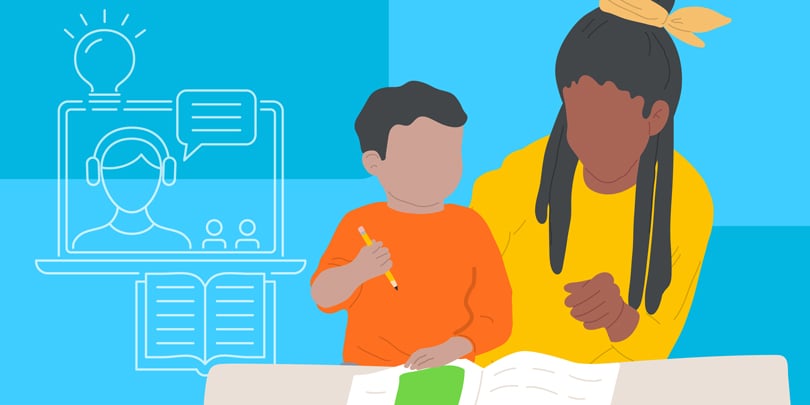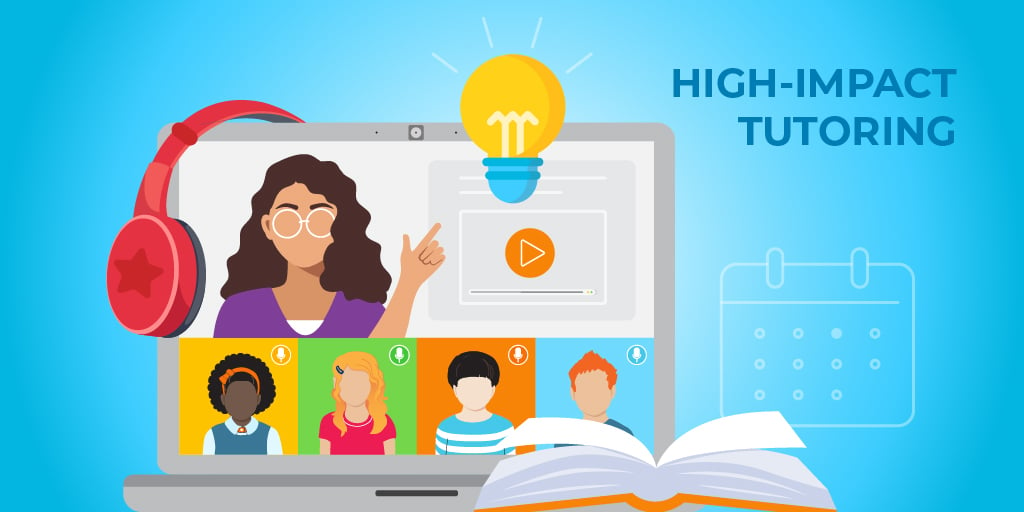The Ultimate Guide to Sucess
How do we identify high-priority students for tutoring?
A Multi-Dimensional Approach to Student Selection
Understanding Academic Performance
Unlocking Growth Potential
Some students are just on the edge of doing better. They might be working hard but not seeing the results yet, or they might really like learning but need a little push. Spotting these students can make a big difference, helping them reach their full potential.
Addressing Specific Learning Needs
Every student is unique, especially when it comes to learning. Some might be learning English as a new language, or some might need different ways of learning because of disabilities. It’s important to notice these needs so tutoring can really work for them.
Incorporating Teacher Insights and Student Voices
Teachers see students every day, so they know a lot about who might need extra help. Plus, listening to what students say about their own learning can give even more clues about who could benefit from tutoring.
Embedding Fairness and Transparency in the Process
Everyone involved, from students and parents to teachers, should understand how the tutoring program decides who gets extra help. Making these rules clear and fair means everyone knows the program is doing its best to help students.
Ongoing Evaluation and Adaptation
What works today might not work tomorrow. Schools should keep an eye on how things are going and be ready to make changes. This keeps the tutoring program up-to-date and working well for all students.
Adding extra tutoring should feel natural, not like a big disruption. The goal is to weave it into the school day in a way that feels right and helps students without making their days too complicated.

At BookNook
Data-driven insights guide our program, ensuring it’s tailored to meet the unique needs of your students and school.
Supporting content

Get a free copy!
Unlock The Ultimate Guide to Successful High-Impact Tutoring | An interactive resource for your PLCs!
Reflect
How can we be sure our tutoring program is equitable?
Support for Marginalized Communities
Overcoming Technology Barriers
"To truly be effective, HIT must transcend traditional barriers and reach all students equitably, regardless of their socio-economic status, background, or learning abilities."
Implementing a Universal Curriculum Design
Committing to Continuous Evaluation and Improvement
By focusing on these key points, we can build a tutoring program that's truly for everyone, helping each student in the best way possible. It's about making sure no one's left behind and that tutoring is a boost for those who could really use it.

At BookNook
Equity is at the forefront. We ensure opportunity for all students, tailoring our approach to meet diverse needs and backgrounds.
Reflect
What makes a high-quality tutor?
The foundation of any successful tutoring program lies in the quality of its tutors. High-impact tutors are not just subject matter experts; they're skilled communicators, empathetic guides, and creative problem-solvers who understand the diverse needs of their students.
What Defines a High-Quality Tutor?
-
Deep Knowledge in Their Field: Tutors need a solid grasp of the subjects they teach, ensuring they can answer questions confidently and expand on topics in ways that enrich the student's understanding.
-
Effective Teaching Skills: Beyond knowing the subject, great tutors must translate complex ideas into understandable concepts tailored to each student's learning style and pace.
-
Strong Communication: The ability to convey ideas clearly and listen actively is crucial. Tutors should facilitate open dialogue, encouraging students to express their thoughts and questions.
-
Empathy and Patience: Understanding and addressing students' emotional and learning challenges with patience can significantly impact their confidence and motivation.
-
Adaptability: Each student's learning journey is unique. High-quality tutors must pivot their strategies to meet individual needs, making learning both effective and engaging.
-
A Commitment to Growth: The best tutors are those who seek continuous improvement, both in their teaching practices and their subject matter expertise.
Finding the Right Tutors
If you're working with BookNook's Virtual Tutoring Service, we've got this part covered! But, if you're going at it alone, identifying individuals who embody these qualities involves a meticulous selection process, emphasizing not only academic credentials but also interpersonal skills and teaching potential.
-
Widening the Search: Utilize various platforms and networks to attract a diverse pool of candidates, ensuring a rich mix of backgrounds and teaching styles.
-
Rigorous Screening: Evaluate applications with an eye for both qualifications and potential, shortlisting candidates who align with the program's values and objectives.
-
In-depth Interviews: Use interviews to delve into candidates' teaching philosophies, problem-solving abilities, and adaptability, ensuring they can connect with students from diverse backgrounds.
-
Practical Demonstrations: Asking candidates to conduct a mock tutoring session can provide invaluable insights into their instructional approach and interaction with students.
Alternative Recruitment Strategies
Exploring various recruitment avenues can enrich your program with tutors who bring different perspectives and skills.
-
Leveraging In-house Talent: Existing teachers can offer consistency and familiarity, although balancing additional tutoring responsibilities can be challenging.
-
Community Volunteers: Parents and community members can provide supportive, personalized tutoring, especially with adequate training and resources.
-
Partnering with Providers: Collaborating with specialized tutoring providers like BookNook can streamline the process, ensuring tutors are thoroughly vetted and trained, ready to integrate seamlessly into your educational setting.
By prioritizing these qualities and approaches in tutor selection and development, tutoring programs can create a nurturing, effective learning environment that supports students' academic and personal growth.

At BookNook
Our tutors are not just knowledgeable, but also empathetic and skilled in delivering engaging, tailored learning experiences that resonate with each student.
Supporting content
Reflect
How can tutors + students build relationships to boost engagement?
At the heart of any high-impact tutoring program is the bond between tutors and their students. More than just educational guides, tutors become trusted mentors, creating a space where students feel valued, understood, and motivated to learn.
The Bedrock of Effective Tutoring: Strong Tutor-Student Relationships
The magic of tutoring often lies in the rapport between tutors and students. It's this connection that can turn a hesitant question into a lively discussion, or transform challenging material into an exciting puzzle to be solved together.
-
Fostering Trust: Trust is the foundation of any great tutor-student relationship. It encourages students to dive deep into their learning, ask questions, and take academic risks in a supportive setting.
-
Customized Learning Paths: Every student's journey is unique. A tutor who truly understands their student can tailor lessons to fit precisely with the student's needs, making each session more effective and impactful.
-
Beyond Academics: Tutors also play a crucial role in building students' confidence and resilience, providing emotional support that nurtures a growth mindset essential for academic and personal success.
Strategies to Cultivate a Nurturing Learning Space
Creating an environment where students thrive involves intentional actions and empathetic engagement from tutors. Here are some ways to build a supportive and encouraging atmosphere:
-
Investing in Rapport: Start by getting to know each student personally. Understanding their interests, challenges, and goals lays the groundwork for a relationship built on trust and mutual respect.
-
The Art of Listening: Active listening is key. By showing genuine interest in their thoughts and concerns, tutors reinforce the bond with their students, making them feel heard and respected.
-
Cheering Success: Acknowledging both effort and achievements is vital. It motivates students, pushing them to set and reach new goals, fostering a love for learning.
-
Embracing Uniqueness: A tutor's ability to appreciate and incorporate each student's background and experiences enriches the learning experience, making it more supportive and relatable.
-
Discovering Common Interests: Finding shared interests can significantly strengthen the tutor-student connection, making lessons more engaging and relatable.
Beyond Tutoring: Emphasizing Mentorship and Personalized Care
The role of a tutor extends well beyond academic instruction; it encompasses mentoring, empathy, and a commitment to addressing the individual needs of each student.
-
Mentorship Matters: Tutors should see themselves as mentors, guiding students not just academically but also in developing life skills and personal values.
-
The Impact of Empathy: Understanding a student's background, challenges, and experiences creates a supportive atmosphere where students feel valued and understood.
-
Tailored Teaching: Personalizing instruction to align with each student's specific needs ensures that tutoring sessions are not only educational but also deeply engaging.
-
Putting Students First: A student-centered approach, where the unique needs and aspirations of students guide the tutoring process, supports not just academic success but holistic personal growth.
In focusing on the depth and quality of tutor-student relationships, we lay the foundation for a learning experience that is rich in engagement, personal development, and academic achievement. By prioritizing these connections, tutoring becomes more than just an educational service; it transforms into a journey of mutual growth and discovery.

At BookNook
We train our tutors to build strong, supportive relationships, fostering a nurturing environment that encourages student growth and confidence.
Reflect

Get a free copy!
Unlock The Ultimate Guide to Successful High-Impact Tutoring | An excellent resource for your PLCs!
Author:
From Our Blog
Stay up to date with what is new in our industry, learn more about the upcoming products and events.

Replacing Passive Screen Time: Rethinking the Screen Time Debate

How High-Impact Tutoring Strengthens State Assessment Readiness
.jpg)

